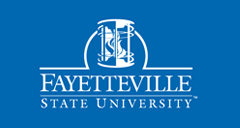Abstract
Oregon needs Black educators in the K-12 public school system. In 35 school districts throughout the state, the number of students of color has risen by over 40% in recent years (Oregon Chief Education Office, 2019). The number of educators of color in the state is under 10%. The number of Black educators is even lower. Research has shown that Black educators improve all students' academic, cultural, and social aspects, especially Black students. Nationally, Black educators were impacted by the Brown v. Board of Education ruling. At that time in history, Black communities fought for civil rights as they experienced colonizing systems in employment, education, housing, and safety. When it entered the union, Oregon, a white-only state, had racist threads of settler colonialism embedded in the laws and practices that systematically institutionalized Blacks' mistreatment.
The day-to-day interactions within many places, including the school systems, cause harm, disengagement, and traumatize Black people. This study is autoethnography that reviews the intersectionality of historical and current federal policies' effects on Black educators through a framework of Black Feminist Thought (Collins, 1990) by answering the following questions: 1) What are the experiences of a Black educator in public school settings in Oregon that contribute to or inhibit working in education? 2) How do federal and state policies and practices contribute to a Black educator's professional growth or decline in Oregon? By examining lived experiences, this study can directly inform day-to-day educational practices and shed light on possible challenges or successes that contribute to or detract from a Black person's likelihood of working in public education in Oregon.
Recommended Citation
Collins, Lisa Y.
(2023)
"Healing Racial Trauma From Public School Systems,"
Journal of Research Initiatives: Vol. 8:
Iss.
1, Article 3.
Available at:
https://digitalcommons.uncfsu.edu/jri/vol8/iss1/3
Included in
Adult and Continuing Education Administration Commons, Bilingual, Multilingual, and Multicultural Education Commons, Community College Leadership Commons, Curriculum and Instruction Commons, Disability and Equity in Education Commons, Educational Assessment, Evaluation, and Research Commons, Educational Leadership Commons, Educational Methods Commons, Educational Psychology Commons, Elementary and Middle and Secondary Education Administration Commons, Elementary Education and Teaching Commons, Gifted Education Commons, Higher Education Commons, Higher Education Administration Commons, Higher Education and Teaching Commons, International and Comparative Education Commons, Junior High, Intermediate, Middle School Education and Teaching Commons, Online and Distance Education Commons, Other Educational Administration and Supervision Commons, Special Education and Teaching Commons, Student Counseling and Personnel Services Commons
